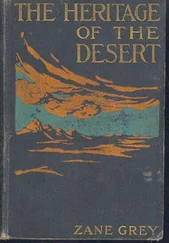Julius Birge - The Awakening of the Desert
Здесь есть возможность читать онлайн «Julius Birge - The Awakening of the Desert» — ознакомительный отрывок электронной книги совершенно бесплатно, а после прочтения отрывка купить полную версию. В некоторых случаях можно слушать аудио, скачать через торрент в формате fb2 и присутствует краткое содержание. Жанр: foreign_language, foreign_antique, foreign_prose, на английском языке. Описание произведения, (предисловие) а так же отзывы посетителей доступны на портале библиотеки ЛибКат.
- Название:The Awakening of the Desert
- Автор:
- Жанр:
- Год:неизвестен
- ISBN:нет данных
- Рейтинг книги:5 / 5. Голосов: 1
-
Избранное:Добавить в избранное
- Отзывы:
-
Ваша оценка:
- 100
- 1
- 2
- 3
- 4
- 5
The Awakening of the Desert: краткое содержание, описание и аннотация
Предлагаем к чтению аннотацию, описание, краткое содержание или предисловие (зависит от того, что написал сам автор книги «The Awakening of the Desert»). Если вы не нашли необходимую информацию о книге — напишите в комментариях, мы постараемся отыскать её.
The Awakening of the Desert — читать онлайн ознакомительный отрывок
Ниже представлен текст книги, разбитый по страницам. Система сохранения места последней прочитанной страницы, позволяет с удобством читать онлайн бесплатно книгу «The Awakening of the Desert», без необходимости каждый раз заново искать на чём Вы остановились. Поставьте закладку, и сможете в любой момент перейти на страницу, на которой закончили чтение.
Интервал:
Закладка:
Such was the beginning of that colonization. I watched the first wagon train that later heralded the coming tide of thrifty Norwegians, and many of their trains that followed. I had never before seen a foreigner. They all followed round the Great Lakes in sailing vessels to Milwaukee. There they piled high their great wooden chests upon farmers' wagons by the side of which in strange, short-waisted, long-skirted woolen coats and blue caps, and with their women and children at their side, they plodded along on foot, first through the forests, then over the openings along the same territorial road. Both men and women often slept at night under the loaded wagons. I have observed them at their meals by the wayside where nothing was eaten but dry sheets of rye bread little thicker than blotting paper, and much like it in appearance. A few villages had then sprung up. From these the Norwegians scattered, chiefly among the hills, and there built little homes and left their impress upon the country.
But westward, and farther westward, the tide continued to flow. As some of the young men in our train were emigrating to the West to establish a home in the new country which they had never seen, I now found myself to be a part of this wonderful westward movement and was again to share in its peculiar vicissitudes and experiences; however, as a participant, favored with special opportunities, observing others also borne forward in the flux of nations.
As our train was traversing the first five-hundred-mile lap to the Missouri River, we discovered that the homes beyond a certain point in Central Iowa seemed suddenly as it were to be few and far apart, leaving increasing stretches of unoccupied land between them. The population rapidly thinned out, until its last ripples were reached in the western part of the state, where the serenity of nature was hardly disturbed by the approaching flood of immigration.
There was already a line of small towns along the west bank of the Missouri, which were the starting points for transcontinental traffic, where freight was transferred from river steamers to wagons. Beyond the Missouri and a narrow strip of arable land along its western shore, lay the vast territory believed to be fit only for savages, wild beasts, and fur traders, a wide, inhospitable waste, which men were compelled to cross who would reach the Eldorado on the Pacific, or the mines in the mountains.
The line of demarcation between the fertile and the arid country was supposed to be well defined. On one side Nature responded to the spring and summer showers with luxuriant verdure; on the western side the sterile soil lay dormant under rainless skies. It was believed that immigration would certainly be checked at this line as the ocean tide faints upon a sandy shore; but it had now begun to flow along a narrow trail across the desert to a more generous land beyond. To this trail our course was now directed.
It would be an exceedingly dull company of emigrants and ox drivers which while traveling together even through a somewhat settled country, and sharing with each other the free life of the camp, would not have among its members a few whose thoughts and activities would at times break out from the narrow grooves of prescribed duties. Our life of migration through the inhabited country was intensely interesting, furnishing many peculiar experiences, all flavored to some extent by the character and temper of the persons concerned. As the eagerness of the men to emancipate themselves from the restraints of civilization increased, they began soon to adopt the manners of frontiersmen, and to resort to every possible device within the range of their inventive powers for diversion.
Young Moore, who hoped to reach Oregon, was an exuberant fellow preferring any unconstrained activities to regular duties. In former days he had distinguished himself in "speaking pieces" in the district school. This training led him often to quote poetry very freely and dramatically. It was Moore who sighted the first game worthy of mention, when he observed two beautiful animals at the moment that they glided into a copse of bushes nearly half a mile from the train. Transferring the care of his team to another, he hastened for his gun and started upon the first interesting hunt of the trip. This being really his maiden experience in the fascinating sport, he was desirous of winning for himself the first laurels of victory in the chase. Not knowing the nature of the animals to be encountered, he approached as closely as possible to the coveted game, penetrating the thicket where the animals were concealed. The first discharge of his gun probably wounded one of the animals which, by the way, had a means of defense that baffles the attacks of the most powerful foe. The more experienced drivers soon knew that he had encountered the malodorous Mephites Americana , commonly known as skunk. Both of the animals and possibly some unseen confederates of the same family, must have invoked their combined resources in the conflict with Moore, for the all-pervasive pungent odor loaded the air and was wafted toward us, seemingly dense enough to be felt. Moore retreated into the open and ran toward the train for assistance, but he was no longer a desirable companion. While it might be truly said that he was a sight, it might better be said that he was a smell.
The train moved on in search of pure air, and Moore followed, bearing with him the reminder of his unfortunate experience. Wheresoever he went he left behind him an invisible trail of odor which had the suggestion of contagion, and from which his fellows fled in dismay or disgust.
In the calm stillness of the next evening, when voices were easily heard at a distance, and when through the soft air of spring, perfumes were transmitted in their greatest perfection, Moore stood alone, far away from the camp, and delivered an eloquent but pathetic monologue, concluding with the servant's words to Pistol, "I would give all my fame for a pot of ale and safety." Then across the intervening space he calmly discussed with his friends the advisability of burying his clothes for a week to deodorize them, a custom said to be common among farmers who have suffered a like experience. It was finally conceded that he should hold himself in quarantine for the night, and not less than a mile from the train, and that during the ensuing days his garments might be hung in the open air on the rear of the hind wagon. The sequel to this hunt was approximately forty miles long, for the train covered more than that distance before it ceased to leave in its trail the fragrant reminder of Moore's first essay in hunting.
On a Saturday the long train rolled through the comparatively old town of Milton, a little village settled in the forties by a colony of Seventh Day Baptists. As is well known, these people honor the seventh day, or Saturday, as their Sabbath, or day of rest. We filed through the quiet, sleepy town while the worshippers were going to their church. It seemed as if we had either lost our reckoning of time, or were flagrantly dishonoring the Lord's Day.
After we had passed through to the open country beyond, some of the boys who had been riding together in the rear and had been discussing the Sunday question brought to mind by this trifling occurrence, decided to interview our highest authority upon the subject, and accordingly rode alongside of Captain Whitmore, who had been riding in advance. "Captain," said one of the party, in a dignified and serious manner, "we know that your recent life has been spent very much in the mountains and that you have not been a regular attendant at church, although we believe your wife to be a good Methodist. What has been your practice in this kind of travel with reference to Sabbath observance?"
"Well, now, my boy," replied the Captain, "I have never cared very much for Sunday or for churches, but you must know that when we get out on the plains we can't afford to stop all our stock to starve on a desert where there is no feed or water just because it is Sunday. Sometimes there may be grass enough on a little bottom for a night, but it will be cropped close before the stock lies down. To remain another night would mean starvation to the stock, which would be roaming in every direction. Of course I don't know the ranges as well as the buffaloes do, but there are a few places, and I know pretty near where to find them, where in most seasons stock can feed a second day, unless others have too recently pastured it. When I find such a place I lie over for a day and don't care if it is Saturday, Sunday or Monday. But," he added, with earnestness, "I want to tell you one thing. I have crossed the plains to the coast many times, and I can take a train of oxen or mules and turn them out one whole day every sixth or seventh day, free to range for twenty-four hours, and I can make this trip in less time and bring my stock through to the Pacific in better condition than any fool can who drives them even a little every day."
Читать дальшеИнтервал:
Закладка:
Похожие книги на «The Awakening of the Desert»
Представляем Вашему вниманию похожие книги на «The Awakening of the Desert» списком для выбора. Мы отобрали схожую по названию и смыслу литературу в надежде предоставить читателям больше вариантов отыскать новые, интересные, ещё непрочитанные произведения.
Обсуждение, отзывы о книге «The Awakening of the Desert» и просто собственные мнения читателей. Оставьте ваши комментарии, напишите, что Вы думаете о произведении, его смысле или главных героях. Укажите что конкретно понравилось, а что нет, и почему Вы так считаете.











